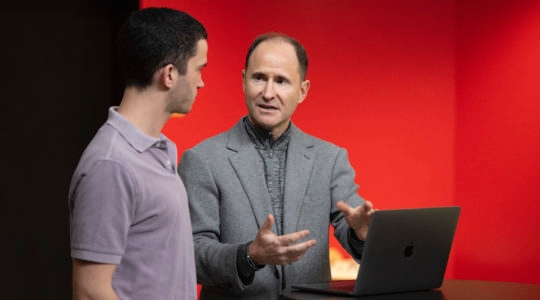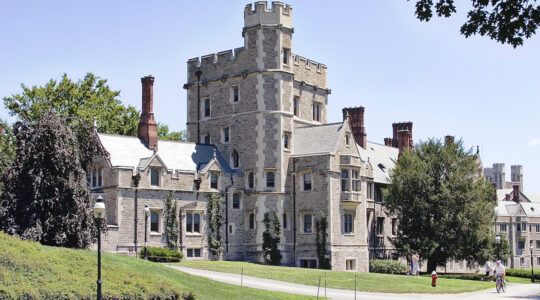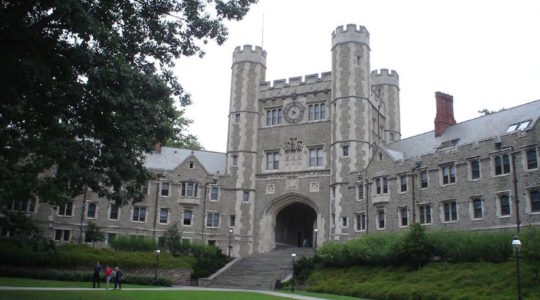(JTA) – The Jewish Education Service of North America is “sharpening the thrust” of the agency to build up supplementary and Hebrew schools.
The move comes as in recent years day school coordinating groups such as the Partnership for Jewish Education and RAVSAK: The Jewish Community Day School Network have come into existence.
“Not so long ago there wasn’t a PEJE or a RAVSAK and we were generalists,” Leora Isaacs, JESNA’s vice president for programs and organizational learning, told JTA. “We are focusing now on complementary education as the first arena that engages the largest population of American youth and has a lot of challenges.”
About 65 percent of children involved in formal Jewish education are in supplementary or Hebrew schools with the remainder in day schools, she said.
However, studies also have shown that around 50 percent of children who might go to the supplementary schools are not involved in Jewish education, she added.
The new direction will have JESNA identify “promising models, guide and assist communities in redesigning their local complementary education systems for children and teens, and foster networks of innovators, established institutions, and national and local support frameworks to ensure that successes are shared and critical issues addressed collaboratively,” JESNA chair Cass Gottlieb said in a statement.
The effort will be led by JESNA’s Lippman Kanfer Institute and the recently created Berman Center for Applied Innovation.
“It is sharpening the thrust for the agency,” Isaacs said.
Also, Don Sylvan, JESNA’s president and CEO for the past seven years, is leaving the agency “to pursue other professional interests,” according to a JESNA release. He will stay on through Dec. 31 as a senior adviser to help his as yet unnamed successor.
JTA has documented Jewish history in real-time for over a century. Keep our journalism strong by joining us in supporting independent, award-winning reporting.





